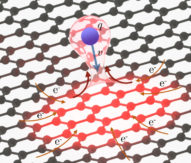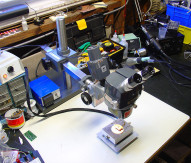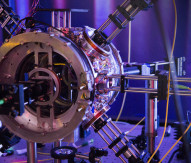
Photonics PPP to ready flexible OLEDs for market
European technology leaders have united under the Photonics Public Private Partnership (PPP) to accelerate the commercial adoption of flexible organic light-emitting diodes (OLEDs) for lighting and signage applications.
PI-SCALE aims to create a European-wide, open access pilot line that will allow companies of all sizes to quickly and cost effectively test and scale up their flexible OLED lighting concepts to make them market ready.
Flexible OLEDs are a promising technology which allow for ultra-thin, bendable, lightweight, transparent and energy efficient lighting solutions that can be made or cut to any shape or size. Their commercialisation will open up a range of exciting design opportunities to create new lighting products in a host of application areas, including architecture, transport, aerospace and electronics.
PI-SCALE is co-ordinated by the Holst Centre and includes 13 expert partners: Audi, CPI, VTT, Fraunhofer, M-Solv, FlexEnable, DuPont Teijin Films, Brabant Development Agency (BOM), REHAU, Emdedesign, Pilkington, Coatema Coating Machinery and AMIRES.
“The creation of this pilot line is a fantastic opportunity for a wide range of companies to get flexible OLED technology out of the research and development phase and into products,” says the Holst Centre’s Dr Joanne Wilson.
REHAU AG+Co researcher Dr Ansgar Niehoff adds: “PI-SCALE gives REHAU the opportunity to gain in-depth knowledge of flexible OLED production with the top European players in this field. This will help us to integrate flexible OLEDs into our premium polymer products in the best possible way.”
PI-SCALE is supported by the European Commission through the Photonics PPP with a contribution of €14m. It has been adopted alongside the pilot lines MIRPHAB and PIX4Life, which will focus on photonics technologies for health applications and sensors for the detection of chemicals in gas and liquids. Together they provide an important contribution to the commission’s efforts to boost Europe’s industrial competitiveness on the global stage.




